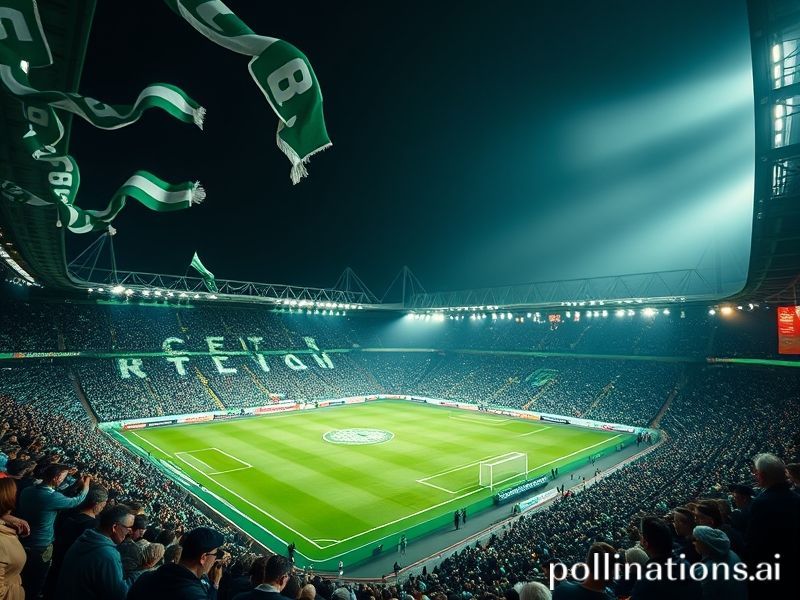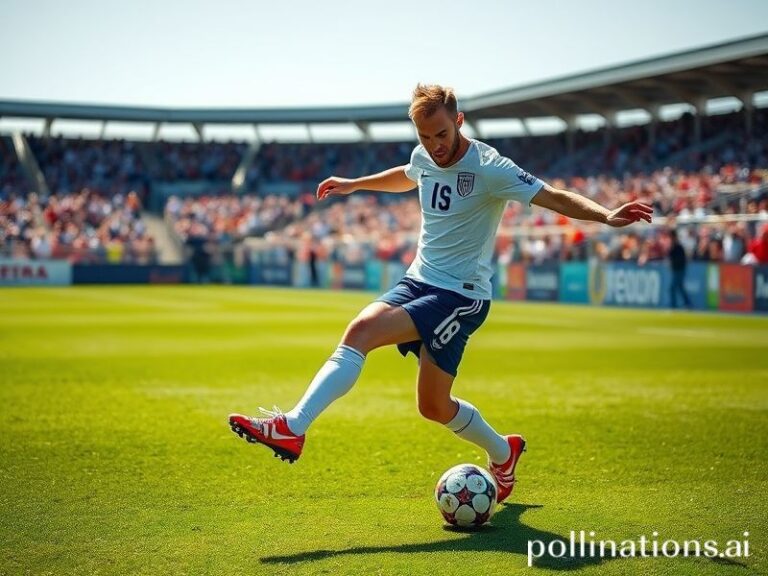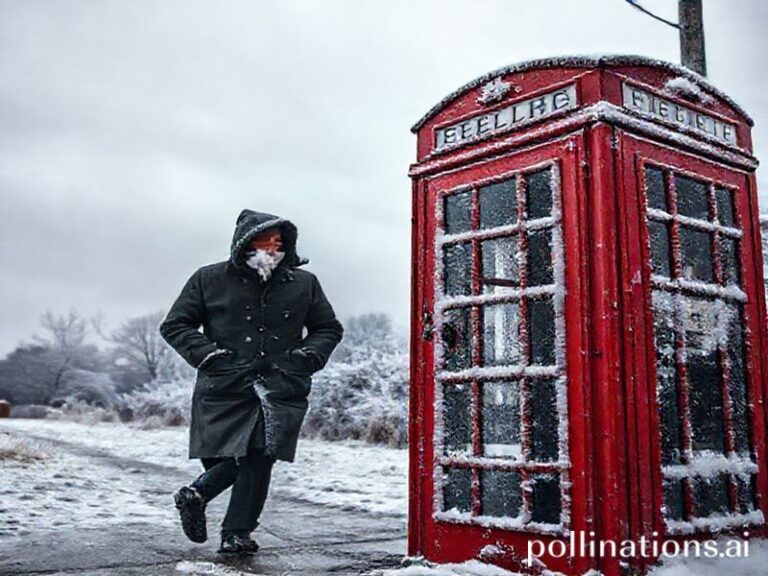Celtic FC: How a Glasgow Parish Team Became the World’s Most Ironic Beacon of Hope
Green and White in a World of Gray
By Our Man in Glasgow, Who Has Seen Too Much
The first thing you notice about Celtic FC—once you’ve elbowed past the tartan scarves and the bag-piped rendition of “Grace” that sounds suspiciously like a funeral march—is that the club has somehow convinced 60,000 people that hope is still a renewable resource. That’s no small feat in 2024, an age when most of us are rationing optimism like tinned beans in a fallout shelter.
Celtic’s story is usually sold as local folklore: a Glasgow parish team founded to feed the city’s 19th-century Irish poor, now morphed into a 21st-century multinational brand whose stock price fluctuates with the bounce of a Mitre Delta. But peel back the embroidery and you’ll find a mirror angled at the wider world. The green-and-white stripes refract everything from post-Brexit migration anxiety to the petro-dollar laundering of the Gulf’s sovereign wealth funds—sometimes in the same Champions League group stage.
Take last season’s European campaign. Celtic bowed out to Real Madrid with the sort of polite 5-1 aggregate that passes for diplomacy these days. The aggregate scoreline read like a communique from Davos: the plucky social-democratic underdog meets the turbo-capitalist monarchy, and everyone gets a participation ribbon. Still, the global TV audience—larger than the population of Uruguay—tuned in partly for the football, partly for the pantomime of class struggle in HD.
Meanwhile, across social media, Celtic’s ultras group, the Green Brigade, were live-tweeting Palestine solidarity slogans faster than the club’s PR department could delete them. The club’s official account pivoted to posting wholesome photos of mascots high-fiving a leprechaun. Somewhere in Silicon Valley, an algorithm weighed the engagement metrics and decided human rights are fine so long as they don’t dip below 4K resolution.
Internationally, Celtic functions as Scotland’s most successful cultural export since whisky and existential dread. In North America, fans gather at 8 a.m. in bars that smell of bleach and maple bacon, pretending that watching a 0-0 draw with Livingston is a spiritual experience. In Sydney, the club’s summer friendly sold out the 83,000-seat ANZ Stadium, because nothing says Scottish identity like flying 10,000 miles to watch a glorified training session under Australian floodlights. The merchandise stall ran out of XXXL jerseys by halftime; obesity is the most honest souvenir of empire.
Financially, Celtic are a paradox: a publicly listed company that behaves like a stubborn co-op. Their wage bill wouldn’t cover Kylian Mbappé’s monthly dry-cleaning, yet they post profits while English Championship clubs burn through parachute payments like Lotto winners on a bender. The secret? A fan base whose loyalty is measured in geological time and season tickets inherited like tartan-clad genes. Try monetising that, venture capitalists.
Of course, the global significance of Celtic FC is best captured by what they are not. They are not Manchester City, with their Emirati soft-power cosplay. They are not the Super League, that hastily aborted coup of bored billionaires who mistook football for yacht racing. Instead, Celtic remain a living fossil: a community-owned club in an era when oligarchs collect teams like vintage wristwatches. Watching them is thus a form of nostalgia for a future that never arrived—rather like democracy, but with better songs.
And so, every other Saturday, 60,000 mortals shuffle into Paradise—yes, they actually call it that—singing about a famine their great-great-grandparents fled, hoping to outrun the present. The world outside may be auctioning off the last glaciers, but inside, for ninety minutes plus stoppage time, the apocalypse is postponed by a last-ditch tackle and a questionable refereeing decision. If that isn’t a metaphor for something, I’ve been drinking the wrong whisky.
Final whistle. The fans spill back into the gray Glasgow drizzle, pockets lighter, hearts inexplicably heavier or lighter depending on the score. Somewhere in Lagos, a kid in a counterfeit Hoops shirt checks the result on a cracked smartphone. He doesn’t know the words to “The Fields of Athenry,” but he understands the arithmetic: hope divided by history equals a football club. The accountants in the boardroom will call it brand reach. The rest of us will call it Tuesday.







